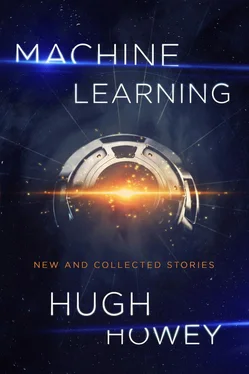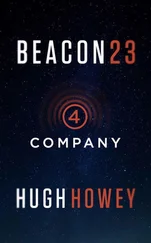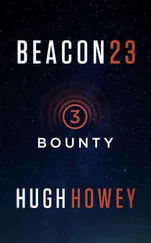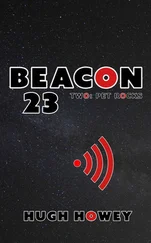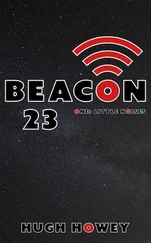Mr. Bunny hits the dash. There’s a yelp from Barbara and a screech from Emily. Ahead of them, the trailer flips and begins a catastrophic roll, the thin metal shell of the trailer tearing like tissue, countless brown packages catapulting into the air and spilling across the embankment.
Time speeds back up, and John can hear tires squealing, cars braking hard on the interstate, a noise like a flock of birds. It sounds like things are alive out there—still responding to the world—but John knows it’s just automated safety features in action. It’s the newer cars protecting themselves from the older cars. It’s the world slamming to a stop like the second hand inside a watch.
Tracy had told him once that he would last five minutes out here on his own. Turning to check on his wife, John sees a van barreling through the grass toward her side of the car. He yells at Barbara and Emily to move, to get out, get out. Fighting for his seat belt, he wonders if Tracy was wrong, if she had overestimated him.
Five minutes seems like an impossibly long time to live.
The Day Before
John likes to tell himself he’s a hero. No, it isn’t that he likes the telling—he just needs to hear it. He stands in front of the mirror as he has every morning of his adult life, and he whispers the words to himself:
“I am a hero.”
There is no conviction. Conviction must be doled out at birth in some limited supply, because it has drained away from him over the years. Or perhaps the conviction was in his fatigues, which he no longer wears. Perhaps it was the pats on the back he used to get in the airport from complete strangers, the applause as the gate attendant allowed him and a few others to board first. Maybe that’s where the conviction came from, because he hasn’t felt it in a long while.
“I’m a hero,” he used to whisper to himself, the words fogging the Plexiglas mask of his clean-room suit, a letter laced with ricin tucked into an envelope and carefully sealed with a wet sponge. The address on the envelope is for an imam causing trouble in Istanbul—but maybe it kills an assistant instead of this imam. Maybe it kills his wife. Or a curious child. “I’m a hero,” he whispers, fumbling in that bulky suit, his empty mantra evaporating from his visor.
“I’m a hero,” he used to think to himself as he spotted for his sniper. Calling out the klicks to target and the wind, making sure his shooter adjusts for humidity and altitude, he then watches what the bullet does. He tells himself this is necessary as a body sags to the earth. He pats a young man on the shoulder, pounding some of his conviction into another.
In the field, the lies come easy. Lying in bed the next week, at home, listening to his wife breathe, it’s hard to imagine that he’s the same person. That he helped kill a man. A woman. A family in a black car among a line of black cars. Sometimes the wrong person, the wrong car. These are things he keeps from his wife, and so the details do not seem to live with them. They belong to another. They are a man in Milan with a beautiful woman swinging in the mesmerizing light. They are two people kissing against a door, a room key dropped, happy throats laughing.
John peers at himself in the present, standing in the bathroom, full of wrinkles and regrets. He returns to the bedroom and finds Barbara packing her bags. One of her nice dresses lies flat on the bed, a necklace arranged on top—like a glamorous woman has just vanished. He steels himself to tell her, to tell her that she won’t need that dress. This will lead to questions. It will lead to a speech that he has rehearsed ten thousand times, but never once out loud. For one more long minute, as he delays and says nothing, he can feel that they will go to Atlanta and he will do as he has been told. For one more minute, the cabin by the lake is no more than an ache, a dirty thought, a crazy dream. Tracy in Colorado has been forgotten. She may as well be in Milan. John thinks suddenly of other empty dresses. He comes close to confessing in that moment, comes close to telling his wife the truth.
There are so many truths to tell.
“Remember that time we had Emily treated for her lungs?” he wants to say. “Remember how the three of us sat in that medical chamber and held her hand and asked her to be brave? Because it was so tight in there, and Emily hates to be cooped up? Well, they were doing something to all three of us. Tiny machines were being let into our bloodstream to kill all the other machines in there. Good machines to kill the bad machines. That’s what they were doing.
“We are all ticking time bombs,” he would tell her, was about to tell her. “Every human alive is a ticking time bomb. Because this is the future of war, and the first person to act wins the whole game. And that’s us. That’s me. Killing like a bastard from a distance. Doing what they tell me. A payload is a payload. Invisible bullets all heading toward their targets, and none will miss. Everyone is going to die.
“But not us,” he will say, because by now Barbara is always crying. That’s how he pictures her, every time he rehearses this. She is cunning enough to understand at once that what he says is true. She is never shouting or slapping him, just crying out of sympathy for the soon-to-be dead. “Not us,” he promises. “We are all taken care of. I took care of us, just like I always take care of us. We will live underground for the rest of our lives. You and Emily will go to sleep for a long time. We’ll have to hold her hand, because it’ll be an even smaller chamber that they put her in, but it’ll all go by in a flash. Daddy will have to work with all the other daddies. But we’ll be okay in the end. We’ll all be okay in the end.”
This is the final lie. This is the reason he never can tell her, won’t tell her even now, will lie and say they’re going camping instead, that she needs to pack something more comfortable. It is always here in his rehearsal that he chokes up and tells her what can never be true: “We’ll be okay in the end.”
And this is when he imagines Barbara nodding and wiping her eyes and pretending to believe him, because she always was the brave one.
John can see two figures in the van, their bodies slumped outward against the doors, looking like they’d fallen asleep. The van veers toward the Explorer. Emily is already scrambling between the seats to get in his lap as John fumbles with his seat belt. Barbara has her door open. The van fills the frame. His wife is out and rolling as John kicks open his door. Mere seconds pass from the time the van leaves the interstate to him and Emily diving into the grass. Scrambling and crawling, a bang like lightning cracking down around them, the van and the Explorer tumbling like two wrestling bears.
John holds Emily and looks for Barbara. There. Hands clasped on the back of her head, looking up at the Explorer, camping gear tumbling out through busted glass and scattering. There’s a screech and the sound of another wreck up on the highway before the world falls eerily silent. John listens for more danger heading their way. All he can hear is Emily panting. He can feel his daughter’s breath against his neck.
“Those people,” Barbara says, getting up. John hurries to his feet and helps her. Barbara has grass stains on both knees, is looking toward the van and the wreckage of the tractor trailer, obviously wants to assist them. A form slumps out of the van’s passenger window. Barbara fumbles her phone from her pocket and starts dialing a number, probably 911.
“No one will answer,” John says.
His wife looks at him blankly.
“They’re gone,” he says, avoiding the word dead for Emily’s sake. Above him, a contrail lengthens merrily.
Читать дальше
